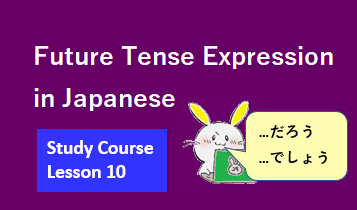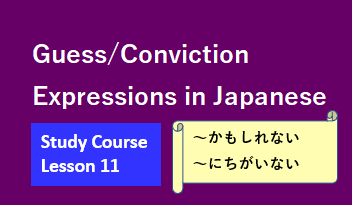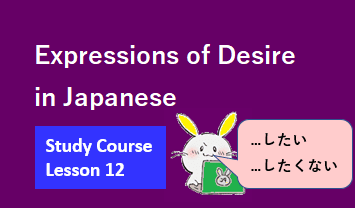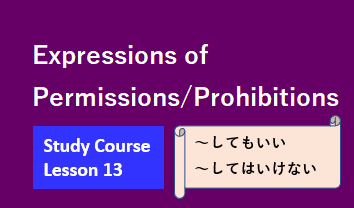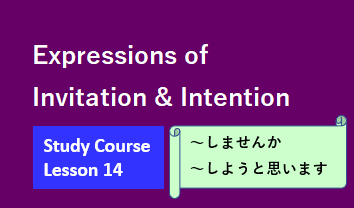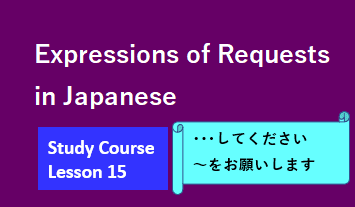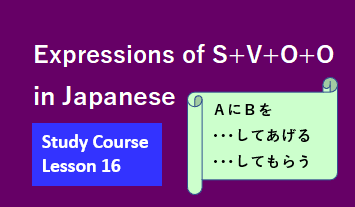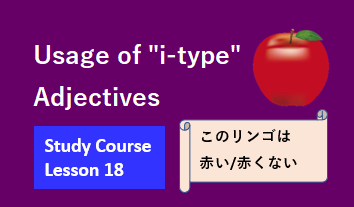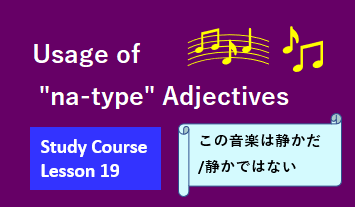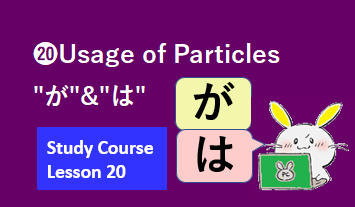Japanese Study Course Lesson17

In lesson 17, we will review the Expressions by verb conjunctive form that we have already studied before. Regarding this style, we have studied the following lessons:
1) present progressive tense and past progressive tense in Lesson6
2) situational expressions in Lesson7
3) Expressions of Permissions and Prohibitions in Lesson13
4) Expressions of "S+V+O+O" in Lesson16
Additionally, you will study new usages such as expressions that indicate the direction of movement. Please take this opportunity to thoroughly review how to use the conjunctive particle "て" immediately after the verb.
17-1 Present progressive tense & Past progressive tense (review)
(1)Present progressive tense
Present progressive tense ➡ " Verb( conjunctive form )+いる/います "
- I am watching my favorite TV program.
- Ordinary:私はお気に入りのテレビ番組を見ている。
- Politely:私はお気に入りのテレビ番組を見ています。
- There is another way of expressing it. If you say "私はお気に入りのテレビ番組を見ているところだ。", the meaning is the same, but this expression emphasizes the present progressive tense.
- To put it politely, it's "私はお気に入りのテレビ番組を見ているところです。". Adding the auxiliary verb"です" after the noun "ところ" makes it a more polite expression.
- See Lesson 6 for more information.
(2)Past progressive tense
Past progressive tense ➡ " Verb( conjunctive form )+いた/いました "
- I was studying Japanese from early morning until noon yesterday.
- Ordinary:私は昨日、早朝から昼まで日本語を勉強していた。
- Politely:私は昨日、早朝から昼まで日本語を勉強していました。
- See Lesson 6 for more information.
17-2 Situational Expressions( review )
Situational Expressions ➡ " Verb( conjunctive form )+いる/います "
- A stranger is standing in front of the door.
- Ordinary:知らない人が玄関の前に立っている。
- Politely:知らない人が玄関の前に立っています。
- See Lesson 7 for more information.
17-3 Expressions of Permissions and Prohibitions( review )
(1)Expressions of Permissions
Expressions of permissions ➡ "Verb( conjunctive form )+て+も+いいです"
- Can I go to Shibuya with my friends tomorrow?
- Ordinary:私は明日、友達と渋谷に行ってもいいか。
- Politely:私は明日、友達と渋谷に行ってもいいですか。
- The ordinary sentence can also be expressed as "私は明日、友達と渋谷に行ってもいい?", and the interrogative particle "か" can be omitted.
- See Lesson 13 for more information.
(2)Expressions of prohibitions
➀・・・してはいけない/・・・してはいけません
Expressions of permissions ➡ "Verb( conjunctive form )+て+は+いけません"
- You must not go to Shibuya with your friends tomorrow.
- Ordinary:あなたは明日、友達と渋谷に行ってはいけない。
- Politely:あなたは明日、友達と渋谷に行ってはいけません。
- See Lesson 13 for more information.
➁・・・してはだめだ/・・・してはだめです
Expressions of permissions ➡ "Verb( conjunctive form )+て+は+だめです"
- You shouldn't drink a lot of alcohol every day.
- Ordinary:あなたは毎日大量にお酒を飲んではだめだ。
- Politely:あなたは毎日大量にお酒を飲んではだめです。
- See Lesson 13 for more information.
17-4 Expressions of "S+V+O+O"( review )
(1)Receiver + particle "に"
➀AにBを・・・してあげる
Expressions of S+V+O+O ➡ "A( receiver )に+B(something)を+・・・し+て+あげる"
- I lent money to my friend.
- Ordinary:私は私の友人にお金を貸してあげた。
- Politely:私は私の友人にお金を貸してあげました。
- See Lesson 16 for more information.
➁AにBを・・・してくれる
Expressions of S+V+O+O ➡ "A( receiver )に+B(something)を+・・・し+て+くれる"
- My grandmother bought me a toy.
- Ordinary:祖母は私におもちゃを買ってくれた。
- Politely:祖母は私におもちゃを買ってくれました。
- See Lesson 16 for more information.
(2)Giver + particle "に"
➀AにBを・・・してもらう
Expressions of S+V+O+O ➡ "A( giver )に+B(something)を・・・し+て+もらう"
- Yesterday, I was very tired from work, so I asked my wife to give me a massage.
- Ordinary:昨日、仕事で大変疲れたので、妻にマッサージをしてもらった。
- Politely:昨日、仕事で大変疲れたので、妻にマッサージをしてもらいました。
- See Lesson 16 for more information.
➁AからBを・・・してもらう
Expressions of S+V+O+O ➡ "A( giver )から+B(something)を・・・し+て+もらう"
- When I was in kindergarten, my older sister taught me English.
- Ordinary:私は幼稚園のときに姉から英語を教えてもらった。
- Politely:私は幼稚園のときに姉から英語を教えてもらいました。
- See Lesson 16 for more information.
17-5 Other usages
(1)・・・していく/・・・していきます
Other usage➀ <Going> ➡ "・・・し+て+いく/いきます"
- How shall we get to the station? I will walk to the station.
- Ordinary:駅まではどのように行こうか?私は駅まで歩いていく。
- Politely:駅まではどのように行きましょうか?私は駅まで歩いていきます。
- Replacing "いく" with "いきます" makes it more polite.
- The meaning of "・・・していく/・・・していきます" has the meaning of the direction of movement, "go", and the meaning of the future tense, "going from now on."
- "私は駅まで歩いていく/いきます" contains both nuances.
- In the case of "私はこれからも中国語を勉強していきます。(I will continue to study Chinese.)", it is just used in the sense of the future tense.
◆Detailed explanation
- Ordinary:駅まではどのように行こうか?私は駅まで歩いていく。
- Politely:駅まではどのように行きましょうか?私は駅まで歩いていきます。
- 駅(object)+まで(objective particle, limit of range)+は(adverbial particle)
- +どのように(interrogative adverb)
- +行こ(verb "行く", intentional form)/ +行き(verb "行く", consecutive form)+ましょ(auxiliary verb "ます", intentional form)
- +う(auxiliary verb, intention)+か(ending particle, question)?
- +私(subject)+は(nominative particle)
- +駅(object)+まで(objective particle, limit of range)
- +歩い(verb "歩く", conjunctive form)+て(conjunction particle)
- +いく(verb "行く", basic form)/+いき(verb "行く", consecutive form)+ます(auxiliary verb, polite)。
- ※ "いく/いきます" in this usage does not use kanji. Use hiragana.
◆Vocabulary note
| 駅 :(noun) station どのように:(interrogative adverb) how 行く :(verb) go 歩く :(verb) walk |
(2)・・・してくる/・・・してきます
Other usage➁ <Coming> ➡ "・・・し+て+くる/きます"
- My father's guests always bring souvenirs.
- Ordinary:父の客はいつもお土産を持ってくる。
- Politely:父のお客さんはいつもお土産を持ってきます。
- Replacing "客"&"くる" with "お客さん"&"きます" makes it more polite.
- "・・・してくる/・・・してきます" has the meaning of the direction of movement, "come".
- In the case of "日本語を勉強する人が増えてくると思います。(I think the number of people studying Japanese will increase.)", it shows the transition/change from the present to the near future.
- In the case of "日本語を勉強する人が増えてきました。(The number of people studying Japanese is increasing.)", it shows the transition/change from the past to the present.
◆Detailed explanation
- Ordinary:父の客はいつもお土産を持ってくる。
- Politely:父のお客さんはいつもお土産を持ってきます。
- 父の(noun modifier)+客/お客さん(subject)+は(nominative particle)
- +いつも(adverb)+お土産(object)+を(objective particle)
- +持っ(verb "持つ", conjunctive form)+て(conjunction particle)
- +くる(verb "来る", basic form)/+き(verb "来る", consecutive form)+ます(auxiliary verb, polite)。
- ※ "くる/きます" in this usage does not use kanji. Use hiragana.
◆Vocabulary note
| 父 :(noun) father 客 :(noun) guest お客さん:(noun) guest, polite いつも :(adverb) always お土産 :(noun) souvenir |
(3)・・・しておく/・・・しておきます
Other usage③ Expression that indicates the intention to have complete a certain action in advance➡ "・・・し+て+おく/おきます"
- My father's guests are coming, so I'll clean the room.
- Ordinary:父の客が来るので、部屋をきれいにしておく。
- Politely:父のお客さんが来るので、部屋をきれいにしておきます。
- Replacing "客"&"おく" with "お客さん"&"おきます" makes it more polite.
- "・・・おく/・・・しておきます" has the meaning of the intention to have complete a certain action in advance.
◆Detailed explanation
- Ordinary:父の客が来るので、部屋をきれいにしておく。
- Politely:父のお客さんが来るので、部屋をきれいにしておきます。
- 父の(noun modifier)+客/お客さん(subject)+が(nominative particle)
- +来る(verb, basic form)+ので(conjunction)、
- +(subject omitted)+部屋(object)+を(objective particle)
- +きれいにし(verb "きれいにする", conjunctive form)+て(conjunction particle)
- +おく(verb "置く", basic form)/+おき(verb "置く", consecutive form)+ます(auxiliary verb, polite)。
- ※ "おく/おきます" in this usage does not use kanji. Use hiragana.
◆Vocabulary note
| 部屋 :(noun) room きれいにする:(verb) clean |
(4)・・・してみる/・・・してみます
Other usage④ Expression that indicates attempting a certain action ➡ "・・・し+て+みる/みます"
- I will try to walk to the station.
- Ordinary:私は駅まで歩いてみる。
- Politely:私は駅まで歩いてみます。
- Replacing "みる" with "みます" makes it more polite.
- "・・・みる/・・・みます" includes the meaning of "try".
◆Detailed explanation
- Ordinary:私は駅まで歩いてみる。
- Politely:私は駅まで歩いてみます。
- +私(subject)+は(nominative particle)
- +駅(object)+まで(objective particle, limit of range)
- +歩い(verb "歩く", conjunctive form)+て(conjunction particle)
- +みる(verb "見る", basic form)/+み(verb "見る", consecutive form)+ます(auxiliary verb, polite)。
- ※ "みる/みます" in this usage does not use kanji. Use hiragana.
"今日はチャッピーさんと夕食を食べてきました。" It informs not only that I had dinner with Chappie today, but also the transition from the past to the present. Therefore, this expression conveys the nuance of "I had dinner with Mr. Chappie today, so I'm full now.''


Today's lesson ends here. Ladies and gentlemen, did you understand today's theme "Expressions by verb conjunctive form"? Next time, we will study "Usage of adjectives." See you!
See you next time!






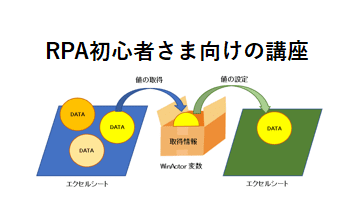


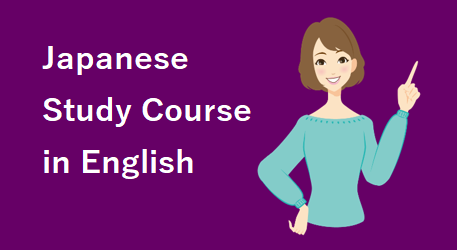


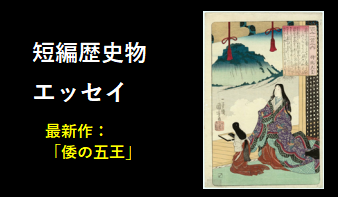
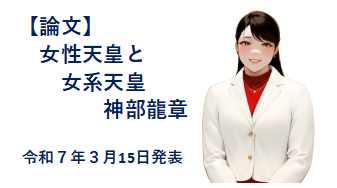

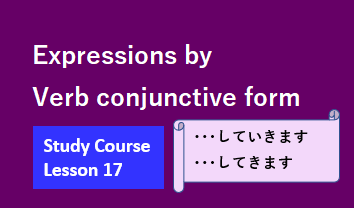


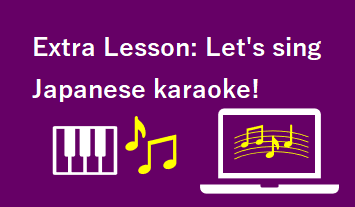
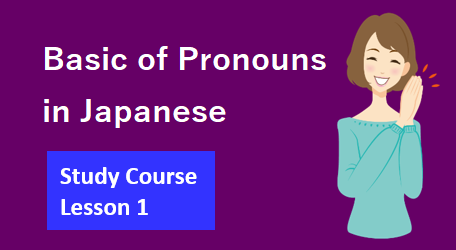
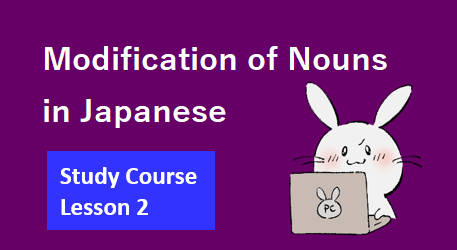

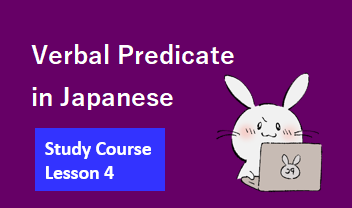
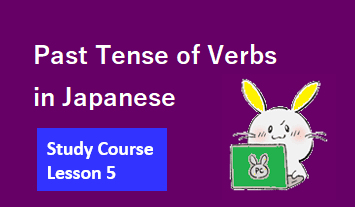
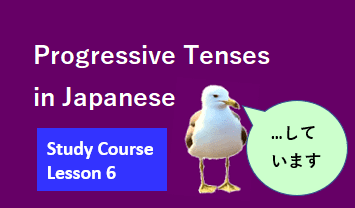
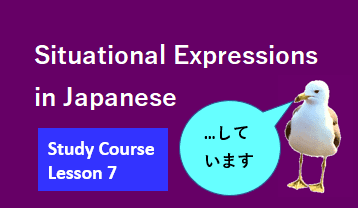
![❽Possible Expressions [1]](https://ryusho-kanbe.com/wp-content/uploads/2023/04/スクリーンショット-2023-04-03-100754.png)
![❾Possible Expressions [2]](https://ryusho-kanbe.com/wp-content/uploads/2023/04/スクリーンショット-2023-04-28-095816.png)
